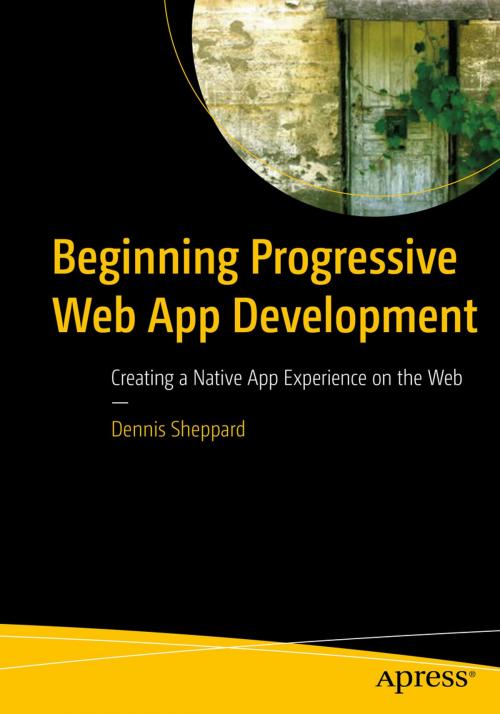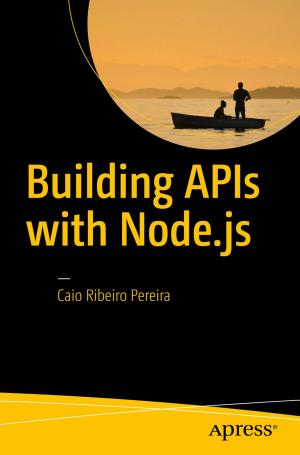Beginning Progressive Web App Development
Creating a Native App Experience on the Web
Nonfiction, Computers, Internet, Web Development, General Computing, Programming| Author: | Dennis Sheppard | ISBN: | 9781484230909 |
| Publisher: | Apress | Publication: | November 29, 2017 |
| Imprint: | Apress | Language: | English |
| Author: | Dennis Sheppard |
| ISBN: | 9781484230909 |
| Publisher: | Apress |
| Publication: | November 29, 2017 |
| Imprint: | Apress |
| Language: | English |
Build fast, reliable web applications using the latest web development technologies. This book provides step-by-step learning through the process of transforming a “traditional” web app into a high-performing progressive web app, leveraging principles and lessons taught throughout the book. You will learn to improve the performance, reliability, reach, and user engagement of mobile web applications through the use of specific, practical examples.
Because most non-trivial web applications developed today use JavaScript frameworks, you will learn about the most popular frameworks offering a PWA right out of the box, including React, Preact, Vue.js, Angular, and Ionic. You also will learn which tools to enlist to measure your application’s performance, such as Google’s Lighthouse.
Beginning Progressive Web App Development includes best practices to make your app work even when an end user has a poor or no Internet connection, and to send notifications and reminders with the Notification and Push APIs to keep your users engaged. You will come away with an understanding of the technologies—application shells, server push technology, and caching—that will allow you to rapidly deliver content to your users.
As important as it is to provide mobile users with a great experience, the principles of PWAs are not limited to smartphones. Most of what you will learn in this book is directly applicable to web applications on all screen sizes.
What You'll Learn
-
Achieve nearly instant loading times
-
Implement service workers to make your app load faster and work while users are offline
-
Keep users engaged with web notifications
-
Measure the performance and reach of your web applications
-
Transform your existing web app into a progressive web app
-
Create a progressive web app from scratch
-
Understand what building a truly fast web app entails with Google’s PRPL pattern
Who This Book Is For
Web developers with prior JavaScript experience
Build fast, reliable web applications using the latest web development technologies. This book provides step-by-step learning through the process of transforming a “traditional” web app into a high-performing progressive web app, leveraging principles and lessons taught throughout the book. You will learn to improve the performance, reliability, reach, and user engagement of mobile web applications through the use of specific, practical examples.
Because most non-trivial web applications developed today use JavaScript frameworks, you will learn about the most popular frameworks offering a PWA right out of the box, including React, Preact, Vue.js, Angular, and Ionic. You also will learn which tools to enlist to measure your application’s performance, such as Google’s Lighthouse.
Beginning Progressive Web App Development includes best practices to make your app work even when an end user has a poor or no Internet connection, and to send notifications and reminders with the Notification and Push APIs to keep your users engaged. You will come away with an understanding of the technologies—application shells, server push technology, and caching—that will allow you to rapidly deliver content to your users.
As important as it is to provide mobile users with a great experience, the principles of PWAs are not limited to smartphones. Most of what you will learn in this book is directly applicable to web applications on all screen sizes.
What You'll Learn
-
Achieve nearly instant loading times
-
Implement service workers to make your app load faster and work while users are offline
-
Keep users engaged with web notifications
-
Measure the performance and reach of your web applications
-
Transform your existing web app into a progressive web app
-
Create a progressive web app from scratch
-
Understand what building a truly fast web app entails with Google’s PRPL pattern
Who This Book Is For
Web developers with prior JavaScript experience















